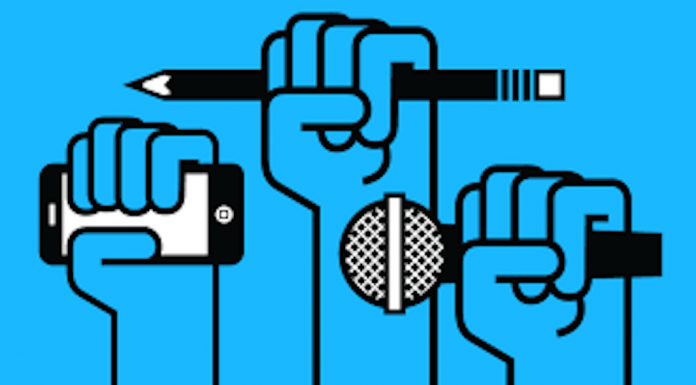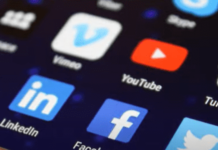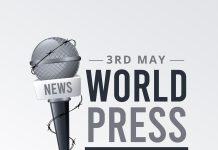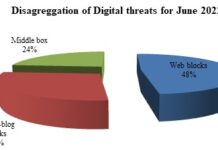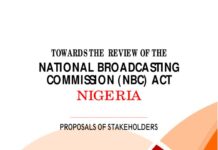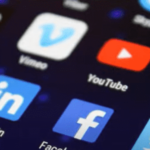A recent research by the Association of Communication Scholars and Professionals of Nigeria (ACSPN), in collaboration with North Dakota State University, ORBICOM/UNESCO and other partners, including APCON with supported from Ford Foundation, has recommended creative approaches to media planning during electioneering processes. This is in view of the multiplicity of media channels and options in contemporary Nigeria. The aim is to ensure that the Nigerian media combines advantages of cost effectiveness, reach, frequency, understanding and cultural relevance in political communication.
In its findings, the All Progressives Congress (APC) and its presidential and vice presidential candidates respectively were main actors on social media during the 2015 presidential campaign. APC was more visible on Facebook, Twitter and blog sites during the election campaigns than the PDP and its candidates. President Muhammed Buhari, who joined Twitter in December 2014, had 683,000 followers by March 2015.
In December 2014, political advertisements in print by the two leading presidential candidates was 5.5 per cent, increased to 31.3 in January 2015, 41.1 per cent in February, the month initially slated for the Presidential election, but significantly declined to19.2 per cent in March. Out of the 89 political advertisements collected on the two leading presidential candidates, 52.8 per cent were radio jingles while 47.19 per cent were TV commercials.
While PDP was less visible on social media before 2015 election, relying mainly and spending heavily on traditional media (TV, newspaper and radio) for its advertisement campaigns, APC on the other hand, relied more on social media and spent far less. In fact, before after the 2015 elections most PDP bigwigs did not have social media handles. But shortly after and smarting from the hurt of defeat, most PDP stalwarts now have strong presence on social media, including @OfficialPDPNig on Twitter.
Also, the advent of social media has had huge impact on journalism as a profession. Both print and broadcast media have had their revenues generation dramatically dropping in recent times, leading some to close down, with others barely surviving the onslaught. While technology is a boon to media operations, it has also complicated the activities and operations of the media by posing challenges for their survival in terms of reaching the audience with current news and information.
According to Pew Research Centre, there is a drastic shift toward online news consumption, as more and more people use their mobile devices to read news. Interestingly, social media provides a unique opportunity both for companies and for customers to interact in real time. Hence, companies and brands can be criticised openly on social media by their customers. In fact, the presence of social media has become crucial for companies and brands.
As media advert revenues continue to drop to social media platforms, media operators are expressing concerns that such adverts placements would further drop with the 2019 general elections underway. The Nigerian media over the years has enjoyed freebies to a large extent from electoral campaigns and advertisements. On the international scene, it would be recalled that early this year, U.S. President Donald Trump had named Brad Parscale as his 2020 re-election campaign manager, as a result of his comments on how his Facebook advertising operation won Trump the previous election. Parscale claims he typically ran 50 to 60 thousand variations of Facebook adverts each day during the Trump campaign, all targeting different segments of the electorate.
The U.K. has also seen a rapid shift to digital campaigning following the Conservative Party’s embrace of Facebook in the 2015 general election.When The Guardian reached out to the Ag. Registrar of Advertisers Practitioners Council of Nigeria (APCON), Mrs. Ijedi Iyoha, she said in spite of advertising trends on digital platforms, traditional media remains an important and reliable method of communicating to target audience.
According to Iyoha, “The innovations of digital platforms for advertising placements leave traditional media with options of being more creative, more dynamic and ambitious. With the nearness of political season, traditional media can improve its utility and reliability by relying on its capabilities to deliver information with good understanding to divers individuals simultaneously.”
Iyoha debunks claims that online advertising answer all the consumers’ questions, adding, “Less attention is given to online advertising where the target audience does not solicit for it. Because of the volume of unsolicited advertisements directed to individuals, many people resort to ad blocker or choose to ignore online advertising thereby defeating the purpose for which the advertiser had invested much.
“Traditional media needs to be innovative to ensure its sustainability and survival in a changing world where digital advertising is taking centre stage. Traditional media makes more lasting impression due to the manner or method of its communication which somewhat is not the case in digital advertising. The advantage of audience not being able to activate and block in traditional media is an opportunity to survive where digital may fail.”
Also, Head, Advertising Unit of The Guardian, Mr. Peter Obiebi, said creative and special projects marketing should now be the focus, noting, “There are more opportunity for traditional paper than we think, as more people still rely on newspapers than the online news. The revenue would go up if the advert marketers understand the product of the paper and sell same to the prospective clients.”
For survival strategies, Obiebi said sell benefits and opportunities to clients through research as well as sound editorials are key to overcoming advert drought.For Chief Executive Officer of Noah’s Ark, Mr. Lanre Adisa, the traditional media still has a big role to play and as far as elections are concerned, as the bulk of voters are in the rural areas.
“Though in electoral campaign advertorials, electronic media has an advantage over print,” he said. “Traditional media needs to embrace change and improve on digital platforms. I am happy about what The Guardian is doing on its digital platforms.”Publisher of RealNews online, Maureen Chigbo, attributed the drop in advertisement revenue to the state of the economy, noting, “The blue chip companies that advertise have been affected by bad economy. As I speak, we are being owed by some of these companies for months.”


